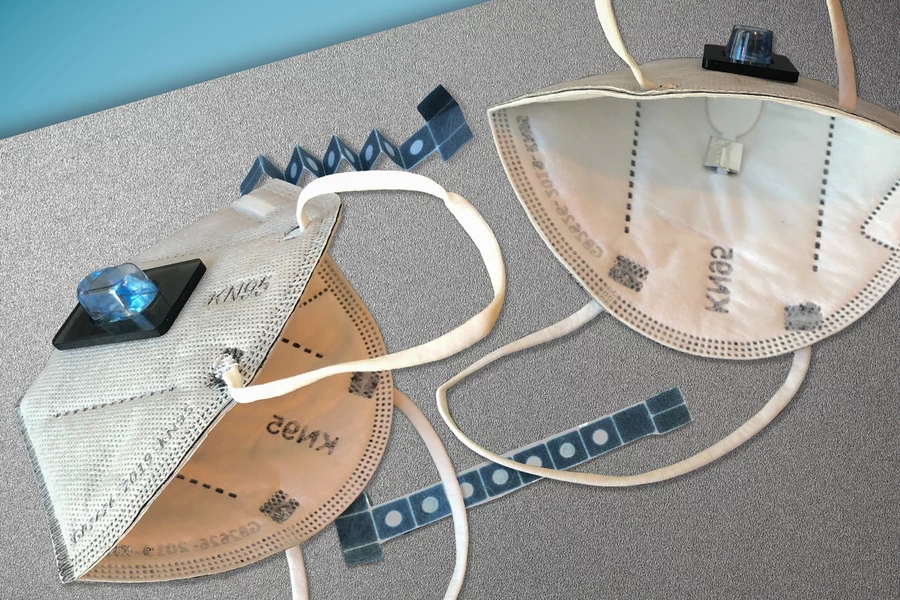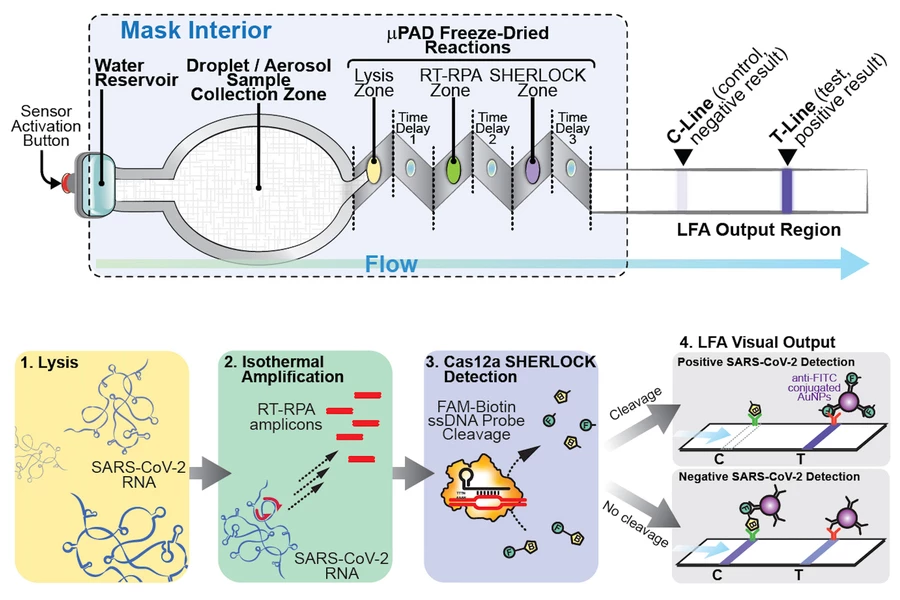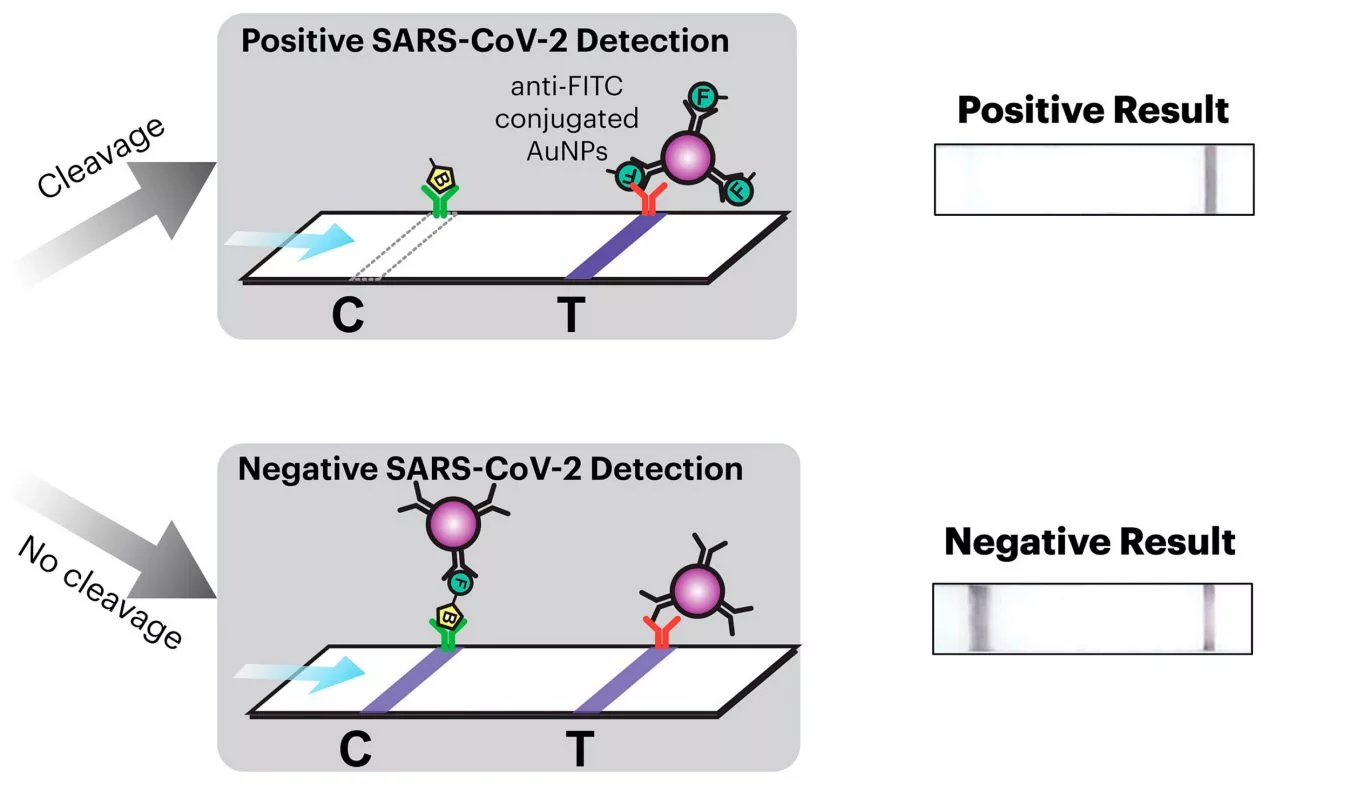Researchers from MIT and Harvard have demonstrated a cutting-edge biosensor technology by developing a face mask that can detect SARS-CoV-2 in a wearer’s breath within just 90 minutes. The sensor technology can be programmed to detect any kind of virus or toxin and is small enough to be integrated into clothing fabrics.
The biosensor has been in development for several years and is based on a new technology dubbed wFDCF (wearable freeze-dried cell-free). Unlike previously developed biosensors that require the incorporation of living cells, this system extracts and freeze dries the cellular machinery needed to detect organic molecules.
“Other groups have created wearables that can sense biomolecules, but those techniques have all required putting living cells into the wearable itself, as if the user were wearing a tiny aquarium,” explains Peter Nguyen, co-first author on the new study. “If that aquarium ever broke, then the engineered bugs could leak out onto the wearer, and nobody likes that idea.”
The wFDCF technology has previously been used to create experimental diagnostic tools for the Ebola and Zika viruses. Around a year ago, as the COVID-19 pandemic took hold around the world, the researchers quickly pivoted to try and turn the experimental technology into a useful product to help combat it.
“We wanted to contribute to the global effort to fight the virus, and we came up with the idea of integrating wFDCF into face masks to detect SARS-CoV-2,” notes co-first author Luis Soenksen. “The entire project was done under quarantine or strict social distancing starting in May 2020.”

The face mask presents the most advanced application of the wFDCF technology to date. Several biosensors in the mask are activated when a button is pressed, releasing a small reservoir of water. This liquid hydrates the freeze-dried molecules in the sensor which can analyze droplets from a wearer’s breath. Within 90 minutes a small strip of paper registers the wearer as either positive or negative for SARS-CoV-2, through a readout similar to that of a pregnancy test.
“We have essentially shrunk an entire diagnostic laboratory down into a small, synthetic biology-based sensor that works with any face mask, and combines the high accuracy of PCR tests with the speed and low cost of antigen tests,” says Nguyen.

Preliminary tests show the diagnostic face mask delivers highly accurate results, comparable to current PCR tests, the gold standard for SARS-CoV-2 detection. Nguyen notes the face mask is the most market-ready product the wFDCF team has developed so far but the technology offers a huge variety of uses beyond just COVID-19 diagnostics.
“This technology could be incorporated into lab coats for scientists working with hazardous materials or pathogens, scrubs for doctors and nurses, or the uniforms of first responders and military personnel who could be exposed to dangerous pathogens or toxins, such as nerve gas,” says Nina Donghia, a co-author on the new study.

This face mask iteration removed all electronic components to enable cheap manufacturing and presented its results on a simple paper strip. But other prototypes have incorporated fiber optic tech to monitor sensor data and send results to a smartphone app.
“This gives you an information feedback cycle that can monitor your environmental exposure and alert you and others about the exposure and where it happened,” Nguyen says.
The researchers are currently looking for commercial manufacturers interested in mass producing the COVID-19-detecting face mask.
The new study was published in the journal Nature Biotechnology.
Sources: MIT, Harvard University




